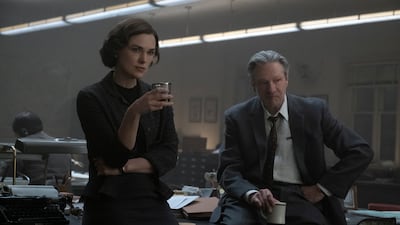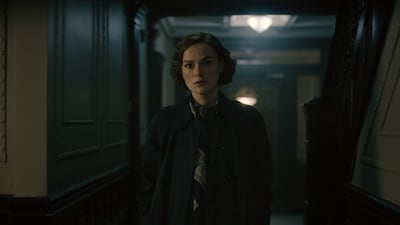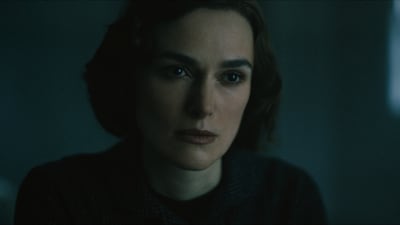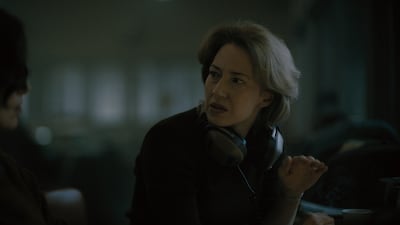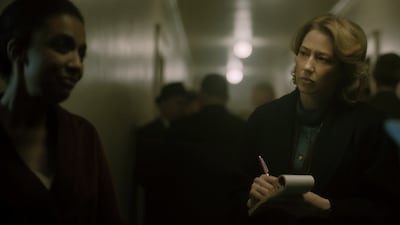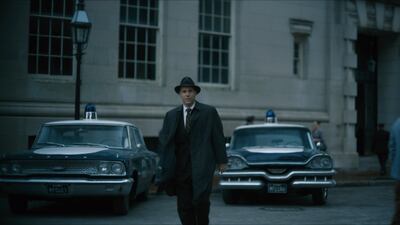Readers are probably familiar with the name of the Boston Strangler — it’s a name that sits in the higher echelons of serial killer folklore, right up there with Jack the Ripper and Jeffrey Dahmer. They may even have seen the 1968 big screen take on the tale starring Tony Curtis as the eponymous killer and Henry Fonda as the hackneyed cop charged with tracking him down, or read the many books about how he stalked women in the American city in the early 1960s.
They're probably not so familiar with the names of Loretta McLaughlin and Jean Cole, but without these two women, there would quite possibly be no trace of Boston Strangler, at least not as we know him. It was McLaughlin and Cole’s painstaking journalism for the Boston Record-American newspaper that first linked the murders, ultimately 13 in total, when the police were still treating them as isolated cases. It was even they who gave the killer his grisly nickname.
For his new take on the story, writer-director Matt Ruskin eschews the traditional gumshoe whodunnit approach, swerves the slasher schlock and instead follows the case through the eyes of these two diligent female reporters, chasing their story against the backdrop of the highly misogynistic world of newspapers in the 1960s.
It’s an approach that drew Keira Knightley, who plays McLaughlin, straight to the script, despite her relative unfamiliarity with the case’s details given her upbringing many miles, and years, away in 1990s London. “I just thought it was a really interesting way of telling the story of a serial killer, through the point of view of these two female journalists,” she explains to The National.
“And the fact that you’ve got a case where most people didn’t know that it was two women who broke the story, that they’ve largely been erased from the history of this case, I thought that was really interesting.”
The approach also appealed to Knightley’s co-star Carrie Coon, who plays the more experienced hack Cole, who is assigned to mentor McLaughlin on her first big story. “That was the most shocking part of it for me,” she admits. “That these women were so integral to breaking the case and to forcing the police departments to share information, and their names are never mentioned in association with it. That was really shocking to me.”
Given the decidedly feminist nature of the story, and the ongoing efforts to redress the gender balance of directors in Hollywood, one can’t help wondering if a man is perhaps not the best person to write and direct this story of two pioneering, but undervalued women. For Coon, however, there was no debate: “I had seen Crown Heights, which Matt had made, and I think of him as a really, deeply moral filmmaker. I knew that his interest in this story was feminist.”
For the director, himself a Boston native, there was a personal side to the story too. “I grew up in Boston and I had always heard about the Boston Strangler, but I really didn’t know anything about the case,” Ruskin explains. “Then, several years ago, I started reading all that I could and discovered this incredibly layered murder-mystery that was full of twists and turns. In many ways, it was as much a story about the city at the time, so I was just completely gripped by the case.”
As Ruskin’s research went on, a more deeply personal side to the story than he could ever have imagined developed. “When I discovered these reporters, I was immediately grabbed by Loretta and Jean’s stories, but there was very little information about them that I could find,” he explains.
“I read Jean Cole’s obituary, and it mentioned that she had two daughters, so I looked them up, and one of them had a Facebook profile. In the Facebook profile, she had one photograph. And in the photo, she had her arm around an old friend of mine.”
It seemed that the stars were aligning for Ruskin, and unsurprisingly he called his old pal. The next revelation could itself have come straight from a Hollywood script — although if it did one would be forgiven for thinking it a little implausible: “She explained that that was her mother, and Jean Cole was her grandmother and someone that she absolutely revered before she passed away,” he says.
Ruskin’s friend introduced him to both families. With such unfettered access to the families, stories and history of his protagonists, the director would seem to have successfully laid to rest any questions about his suitability to make the film.
Nonetheless, this is ultimately a film about two inspiring women, and it’s one that Knightley hopes can inspire women in the modern day, even if the pair’s virtual anonymity at the time meant they didn’t have the opportunity to inspire their contemporaries.
“I've been speaking to quite a few women who've seen the film, and this word keeps coming up, which I find fascinating, which is that it was ‘cathartic’ to watch it. I think probably I experienced that when I read it, all of the things that she came up against," Knightley says.
"Whether it's the male-dominated workplace or desperately trying to have a home life and a job, and trying to raise children at the same point as trying to get justice for these women,” she explains. “I think it's something that a lot of women today can relate to.”
Boston Strangler releases globally on Disney+ on Friday, March 17
